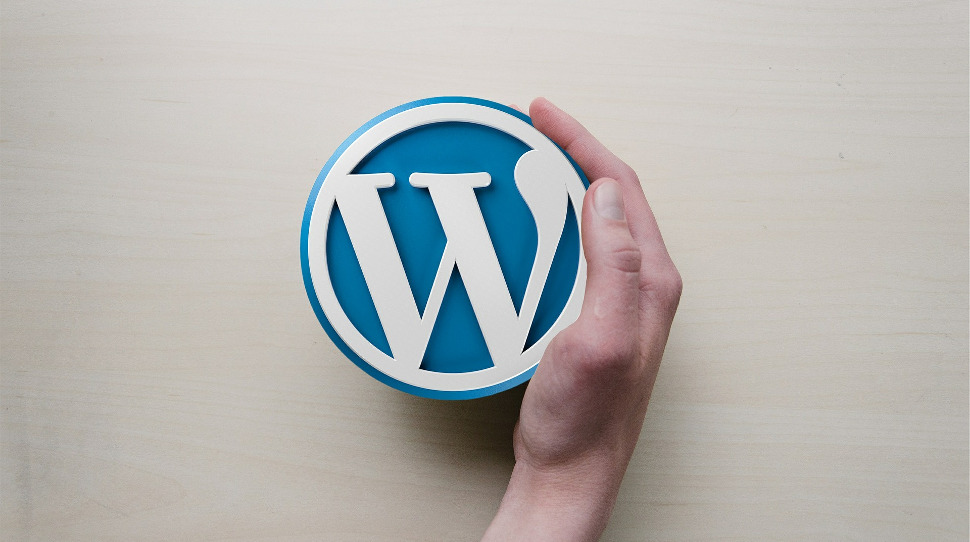8 myths about WordPress, busted
WordPress has grown far beyond just a simple blogging platform

Unicorns. Mermaids. Werewolves. Big Foot. The Loch Ness Monster. What do all of these things have in common? They’re all mythical creatures that were once thought to actually exist in folklore, but have been classified as pseudoscience today. Sometimes, perceptions persist even if they aren’t true, but that doesn’t mean we’re stuck with them.
Take WordPress, what was once a blogging platform now powers over 28 percent of the web. Everything from personal blogs to enterprise websites can be built using the CMS.
WordPress is no longer an amateur tool, yet some still perceives it to be “that one blogging platform.” Is WordPress really just a toy for bloggers? Let's debunk that and some of the biggest myths about WordPress today.
- We've also highlighted the best WordPress hosting

1. WordPress is just a toy for bloggers
If you placed WordPress on a spectrum between toy and tool, the fact is, WordPress fits as both. While WordPress use to be a toy for bloggers (and still technically can be used that way), it has also evolved and is equipped for the enterprise.
WordPress is the most popular CMS on the planet, taking gigantic strides over competitors Drupal and Joomla, which only power a mere 2.9 and 1.73 percent of the market share respectively. In addition, as stated above, today WordPress powers over a quarter of the web at a staggering 28 percent of all websites (and growing).
There are a ton of bloggers who use the “.com” version of WordPress for its free hosting and in-house security features. However, those looking to take a more robust approach use the “.org” version as a platform to build virtually anything they desire...blogs, applications, stores, and so on.
Just a few notable brands using WordPress to power their online presence include: TechCrunch, Beyoncé, MTV News, Walt Disney, and more. Not only do these brands use WordPress because it is cost effective compared to other solutions like Adobe, but it also offers enough flexibility in front-end design, with powerful, open source backend features.
Are you a pro? Subscribe to our newsletter
Sign up to the TechRadar Pro newsletter to get all the top news, opinion, features and guidance your business needs to succeed!
WordPress’ open source nature means anyone can download the software, a theme, or a plugin, and tweak the code the way they want. It’s not a closed end solution.

2. It’s not good for e-commerce
If looking to sell tangible or digital goods or services online, WordPress is an excellent choice for an online shop. The most popular solution is WooCommerce, which currently powers 41 percent of all e-commerce stores. WooCommerce is a super easy solution to use even without much technical knowledge. However, there is the common misconception that WooCommerce can’t scale.
Without investing in hosting, you could endure issues with scaling for traffic. WP Engine addresses many of these issues with its e-commerce plan dedicated for WooCommerce clients. However, you aren’t just limited to WooCommerce on WordPress.
There are plenty of integrations for other solutions, like Shopify for example, who built a plugin to integrate WordPress and Shopify. With the Shopify e-commerce plugin, you can make any WordPress page or blog shoppable, adding e-commerce functionality to your WordPress site. Other WordPress e-commerce solutions include BigCommerce, Volusion, and Magento.
3. WordPress isn’t scalable
Because WordPress is an open source platform that also happens to be free, the question of scalability is always a concern. Will your site be able to handle a sudden traffic spike? If you create the right environment, you can definitely build a WordPress site that is scalable and able to handle any amount of traffic.
Some of the key ways to appropriately scale a WordPress site is by creating a suitable and sustainable development environment, effective horizontal scaling, caching, and query performance. Design-wise, WordPress can be used as a simple blogging website using a built-in theme or can be scaled to have a complex and sophisticated design structure using complex tools.
4. No support
Since no one owns WordPress and it’s free for everyone, there must be no one out there to help you, right? Wrong. WordPress has a very active community of developers, designers, content producers, marketers, support representatives and more.
WordPress offers community based support forums intended for learning, sharing, and troubleshooting. Additionally, a plethora of resources from numerous blogs and companies associated with the WordPress platform continually provide educational content to maintain a topnotch WordPress site.
There are also CDN options which involve routing your site through a reverse proxy and leveraging caching at this level. Offloading content through this type of CDN can be valuable for sites with extremely high levels of traffic. They allow for custom configuration of caching for pages and files as well if you want a more granular approach to caching. By using this kind of CDN, it helps offload a good portion of the server processing to cache it instead.

5. It’s not secure, or more likely to be hacked
There is absolutely no proof that WordPress is any less secure than any other CMS site. Truth is, all sites are vulnerable to security breaches, including WordPress. Because of it’s sheer volume on the web (about 28%), it attracts attacks. But WordPress is not a new platform. During its decade long evolution, WordPress has released a number of informative security tutorials as well as reliable security plugins. And as WordPress continues to grow and mature, the security plugins only get more advanced resulting in decreased unblocked hacks.
Each new update brings tougher security measures and features. However, the true security of a WordPress site comes from the user’s ability to consistently update themes, plugins, and add-ons and maintain backups. Users should also create complex passwords and change them often. Nearly 80 percent of actual security threats and infections are due to a vulnerability caused in outdated software/password exploits. A digital experience platform like that offered by WP Engine is guaranteed to ensure indestructible security for your WordPress site.
6. Its future is uncertain
This is a popular misconception usually shared by people who aren’t well-versed with the workings of open source software and the power of the community. Thanks to its popularity on the web, its developer has been able to create a successful company around WordPress named Automattic. Before you raise your eyebrows, know that the WordPress software itself is developed outside of the company by the non-profit WordPress Foundation.
7. Most of its plugins are useless
WordPress has an extensive plugins infrastructure that hosts over 56,000 plugins, both free and paid. It’s only natural to assume that some wouldn’t be as useful as others, and some might even be completely useless. Which is why you should check the reviews of the plugins before installing them. It’s also prudent to stick to plugins with the highest downloads and high ratings.
8. All WordPress websites look alike
Just because all WordPress installations look the same straight out of the box, doesn’t mean they’ll look the same when they finally go online. WordPress uses themes to control the appearance of any WordPress-powered website and just like plugins, there are thousands of them to choose from, including both free and paid ones. In fact there are several WordPress theme developers who will happily customize their theme as per your requirements for a reasonable fee.
- Interested in WordPress? Learn more about its history here
- Check out the best website hosting services
Alyssa Cuda is a Content Specialist at WP Engine. She is specialised in helping start ups build a reputation, not just a brand.
